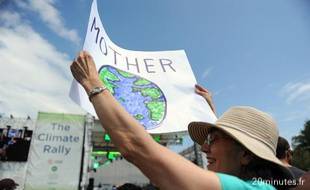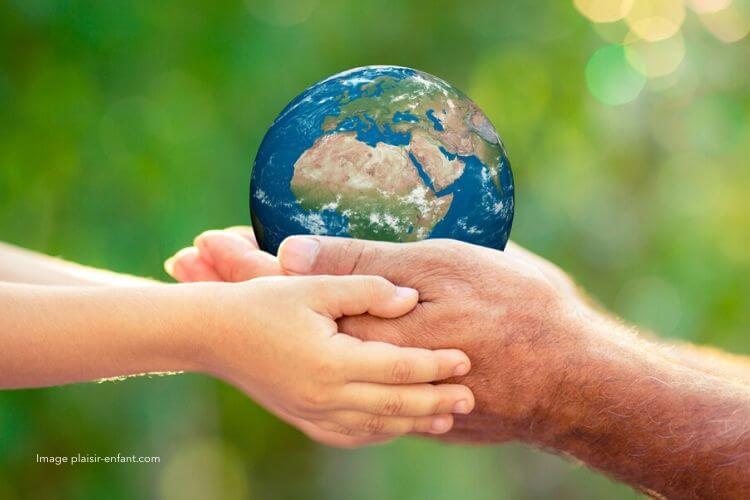MMM responds to Roadmap on European Green Deal Strategy for Adaptation to Climate Change
30.06.20
Women may be disproportionately impacted by climate change given their more vulnerable socio-economic position.

They may also be at a disadvantage when expensive adaptation measures are required, as they may not have the means to address climate change and protect themselves[1]. Furthermore, women, particularly mothers, are still responsible for most caring and household tasks for the family. Care work is also likely to increase due to health impacts of climate change or natural disasters[2], putting additional burdens on mothers. In addition, as the in-depth analysis for the FEMM Committee[3] highlights “social and cultural norms also influence women’s’ vulnerability to climate change due to the gendered division of labour, mobility, roles in the household and participation in political and economic decision making.”
 Women have an important role to play in finding solutions to the current climate crisis. But they tend to have a “smaller ecological footprint and propose different solutions to climate change than men.”[4] The 2012 report on Women and the Environment from the European Institute for Gender Equality (EIGE) found that women are more willing to accept that they must make changes in their personal lives to reduce the effects of climate change. Women are also more likely to buy products from environmentally friendly companies and to pay a higher price for these products. They also try to choose low carbon practices. Studies show that in many countries men consume more energy than women, particularly for private transport, while women are often responsible for most of the household consumer decisions, including in relation to food, water, and household energy.[5]
Women have an important role to play in finding solutions to the current climate crisis. But they tend to have a “smaller ecological footprint and propose different solutions to climate change than men.”[4] The 2012 report on Women and the Environment from the European Institute for Gender Equality (EIGE) found that women are more willing to accept that they must make changes in their personal lives to reduce the effects of climate change. Women are also more likely to buy products from environmentally friendly companies and to pay a higher price for these products. They also try to choose low carbon practices. Studies show that in many countries men consume more energy than women, particularly for private transport, while women are often responsible for most of the household consumer decisions, including in relation to food, water, and household energy.[5]
Despite their key role in mitigating the effects of climate change, “they are underrepresented in (inter)national negotiations and policy making on climate change”. According to EIGE, women’s participation in climate change decision-making at local, national or international level is not equal to men’s. The reasons for this low participation “are rooted in organisational and cultural structures, in the traditional division of care responsibilities between women and men, and in educational choices.” There is therefore a need to increase gender equality in decision-making for equity and equality reasons. And if “climate change policies are not targeted at all relevant beneficiaries and consumers, they are less likely to address the different needs of society, will not lead to efficient outcomes and will not bring benefits to men and women on an equal basis”.[6]
 Therefore Make Mothers Matter stresses the importance of considering the gender perspective in measures taken to mitigate the effect of climate change, and more particularly in the European Green Deal Strategy for Adaptation to Climate Change. These policies should take into account the direct economic and social impact and the required investment in time these measures would require. As described above, women, especially mothers, are more likely to engage in sustainable behaviours and are also still responsible for most of caring and household tasks. This investment in time, although crucial for the wellbeing of the planet is, just like the investment in unpaid care work, not recognised. If these differences between men and women are not considered in climate policies, there is a risk that there will be an increase in gender inequality because climate change will make the position of women, and mothers, yet more difficult.
Therefore Make Mothers Matter stresses the importance of considering the gender perspective in measures taken to mitigate the effect of climate change, and more particularly in the European Green Deal Strategy for Adaptation to Climate Change. These policies should take into account the direct economic and social impact and the required investment in time these measures would require. As described above, women, especially mothers, are more likely to engage in sustainable behaviours and are also still responsible for most of caring and household tasks. This investment in time, although crucial for the wellbeing of the planet is, just like the investment in unpaid care work, not recognised. If these differences between men and women are not considered in climate policies, there is a risk that there will be an increase in gender inequality because climate change will make the position of women, and mothers, yet more difficult.
Furthermore, including education on sustainable practices in school curricula or extracurricular activities  is crucial. Societies need to train and encourage end-users and in particular families, in sustainable practices such as reducing waste, recycling and reuse, eco-friendly habits, use of energy-efficient products, consuming local, sustainable consumption, second hand buying, etc. These will have a multiplying effect as they will transfer this knowledge to the families and communities they live in.
is crucial. Societies need to train and encourage end-users and in particular families, in sustainable practices such as reducing waste, recycling and reuse, eco-friendly habits, use of energy-efficient products, consuming local, sustainable consumption, second hand buying, etc. These will have a multiplying effect as they will transfer this knowledge to the families and communities they live in.
Lastly, women’s participation in negotiations and decision-making related to climate change needs to increase on all levels.
[2] Ibid., p.19.
[3] Anne Bonew, DIRECTORATE GENERAL FOR INTERNAL POLICIES POLICY DEPARTMENT C: CITIZENS’ RIGHTS AND CONSTITUTIONAL AFFAIRS WOMEN’S RIGHTS & GENDER EQUALITY, The Gender Dimension of Climate Justice IN-DEPTH ANALYSIS, 2015, p.6.
[4] Ibid.
[5] The World Health Organisation, Gender, Climate Change and Health, 2014, p.6.
[6] EIGE, Review of the Implementation in the EU of area K of the Beijing Platform for Action: Women and the Environment Gender Equality and Climate Change, 2020, p.43.
The New EU Gender Equality Roadmap : A Call for Inclusion of Mothers
04.03.25
The European Commission’s initiative on a new Gender Equality Roadmap post-2025, marks a significant step forward in addressing gender disparities across the European Union. Make Mothers Matter (MMM
Breaking the Cycle: Gender Equality as a Path to Better Mental Health
18.03.25
The Council of the European Union has taken a decisive step in recognising the vital connection between gender equality and mental health.
Europe Must Listen to Mothers: Our landmark report heads to the European Parliament
28.08.25
On 22 September 2025, the voices of mothers will take centre stage in Brussels. For the first time, Make Mothers Matter (MMM) will present its State of Motherhood in Europe








